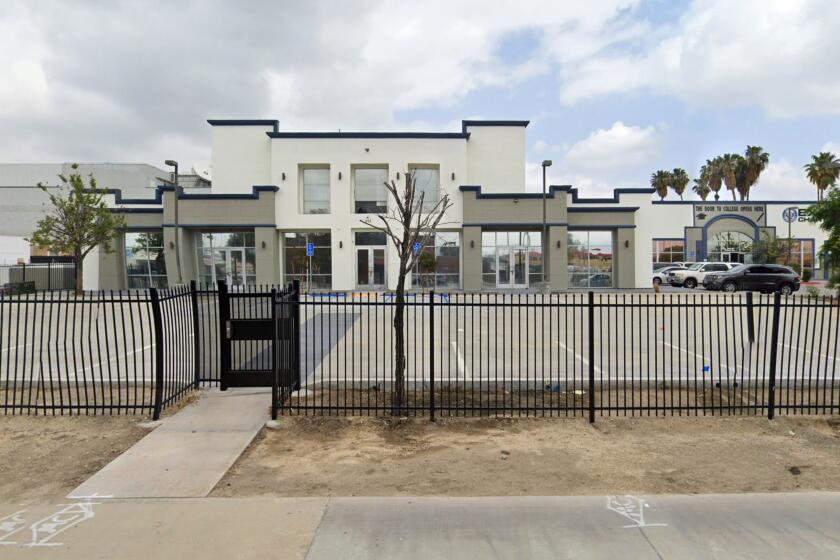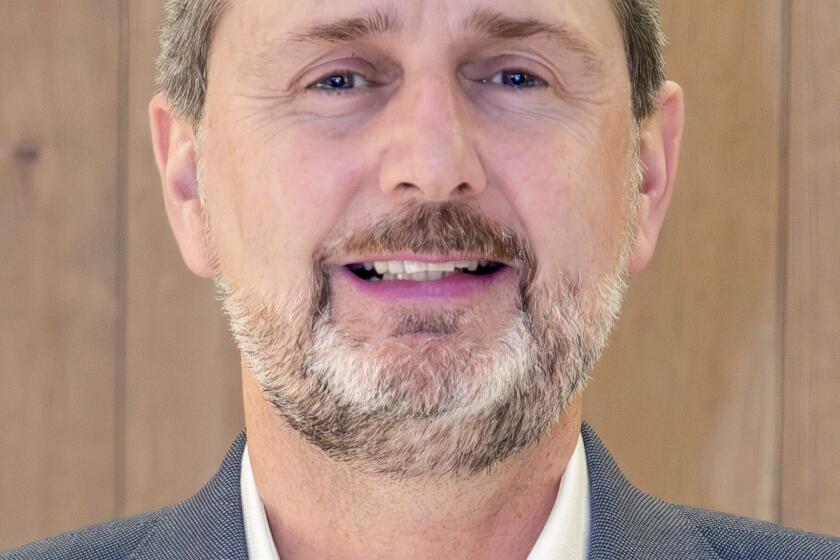Presidential election brings out surprises on Facebook
He’s the younger brother of a girl I knew in elementary school in Cleveland. Until he friended me on Facebook a few years ago, we hadn’t been in touch since Lyndon Johnson was battling Barry Goldwater for the presidency.
So why was I surprised — and annoyed — when his recent status messages in my Facebook news feed featured a thumbs-up for “Things Liberals Hate,” a snarky “NObama” meme, and a shout-out to the host of a fundraiser for Mitt Romney?
Because Facebook has become a political battleground — with the civic pretension of a campaign town hall and the clumsy incivility of a brewing street brawl.
We might not talk politics in the office, at the gym, in the beauty shop ... but we’ve got no qualms about spreading recycled “birther” drivel or savagely mocking Romney’s gaffes with strangers, ad nauseam, online.
We’re exposed to the political views of “friends” in a way we’ve never been before. That’s made this presidential campaign, for many people, a jarring wake-up call.
Like the woman I met last week, as we sat at the bar in an Encino restaurant watching Barack Obama deliver his convention speech. She’s a center-leaning Democrat, with a far-flung group of longtime friends who share her husband’s passion for racing cars — but not, apparently, her politics.
“You spend all this time with these very, very intelligent people, who are very nice, good people at heart,” she said. Then you read their emails and Facebook posts “and it makes you wonder what you missed.
“Can they really be that dumb?”
::
The last time we elected a president, Facebook was 4 years old. In that campaign, the social network was mostly a messaging venue for savvy political strategists and grass-roots activists, trying to rally the faithful.
But it came of age as a political force in the midterm elections two years ago, when an “I Voted” message shared on election day among millions of Facebook friends prompted hundreds of thousands of people who might not have voted to cast their ballots.
That was the conclusion of a study published this week by UC San Diego professor James Fowler, who has spent years researching the impact of those political posts that are clogging up our Facebook feeds.
This year, half of all Americans over age 12 are sporting Facebook profiles, and the social network has become our desperate and divided electorate’s megaphone.
I miss what I used to consider mundane: the vacation photos of people I barely know, heartwarming animal videos, chronicles of friends’ weight loss campaigns.
They’ve been swallowed up by posts about Obama’s birth certificate and Romney’s tax returns, tributes to the First Couple’s romance, memes of Clint Eastwood and the empty chair.
The deluge has even sparked its own Facebook squabble, over whether it’s an impolite intrusion or a civic responsibility to push political views online.
Fowler’s not surprised that even innocuous political posts wind up provoking such turmoil.
That’s because they violate traditional social norms that frown on public arguments about religion or politics. And they challenge the notion that friendship is vested in compatibility, by revealing unexpected views of people we thought we knew.
In person, people tend to steer clear of sensitive subjects, Fowler said, “because they don’t want to take the risk of hurting someone or damaging relationships with people they like and respect.”
But your online social network is broad, amorphous and tangentially connected. These are people you know from the gym, your children’s school, your fantasy football league.
We presume they share our social views, because that is what we’re wired to do.
“Our natural human tendency is to make and maintain friendships with people who are like us,” said Fowler, whose study of ancient civilizations suggests that’s an evolutionary imperative.
The notion endures because it’s comfortable. But these in-your-face declarations on Facebook are challenging that.
It’s one thing to discover that your Facebook friend loves cats while you love dogs, or listens on Spotify to a group whose music sounds to you like noise.
It’s another to realize that your college fraternity brother, the best man at your wedding 20 years ago, is now firmly convinced that America is tilting toward socialism and our president is a Muslim.
And he won’t stop telling you so.
::
It only takes a few clicks to solve the problem: You can unfriend, unsubscribe or simply hide the posts that make your blood pressure rise.
According to a Pew Research Center poll — taken last spring, even before the campaign heated up — almost 30% of avid Facebook users have taken that approach: blocking, unfriending or hiding someone’s post because they’re politically poles apart.
And almost 40% of social network users said they didn’t realize until they read a friend’s post just how far apart their politics were.
In other words, not only do we seek out people who see the world as we do, but we project our views on those who don’t. Then we try to silence them when they surprise us, allowing the echo chamber of Facebook to validate and strengthen whatever we feel in our gut is right.
“For most people, politics is visceral,” Fowler said. “The average person is just using their gut to figure out what seems right.
“We overestimate the degree to which our friends share our opinions [because] social networks make it easy to seek out and maintain relationships with people, no matter where in the world they are, who might have exactly the same weird, messed-up set of beliefs that you’ve decided is right.”
Facebook may make it easy to lob a political rant into an unsuspecting crowd. “But the online world also makes it really easy,” Fowler said, “to hide, de-friend or look away from people we don’t agree with.”
His view makes a little political contention seem like not such a bad thing.
I guess I can put up with a little rah-rah Romney, if you don’t block my Obama 2012.
More to Read
Start your day right
Sign up for Essential California for news, features and recommendations from the L.A. Times and beyond in your inbox six days a week.
You may occasionally receive promotional content from the Los Angeles Times.






